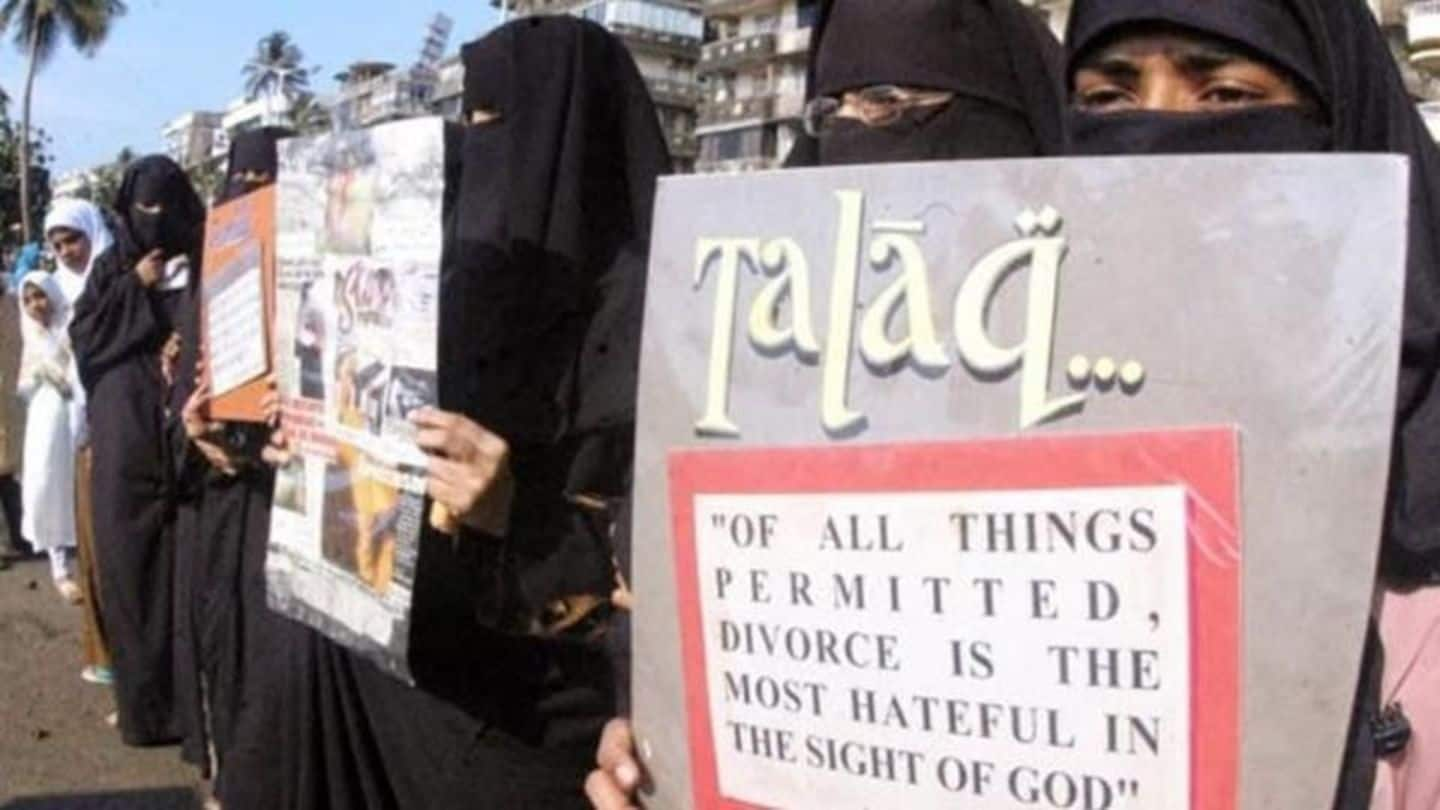
Triple talaq ban: An end to a decades-long revolution
What's the story
Thousands of activists and Muslim women erupted in joy as the SC banned triple talaq. A prominent face among them was Shayara Bano, who led the fight against the practice. Bano, the first woman to challenge triple talaq, called it a "historic day for women". "We started the fight so future generations get justice," she recounted. It was the culmination of a decades-long revolution.
Shayara Bano
The Shayara Bano case: Fighting against an abused anti-women practice
Shayara was married for 15 years when in October'15, her husband pronounced 'talaq' thrice. She then approached the courts seeking an end to triple talaq, polygamy and nikah halala (wherein a woman can remarry her first husband only after consummating and then breaking off a marriage to another). All are accepted practices in Islam. The SC had refused to discuss polygamy and nikah halala.
Shah Bano
Shah Bano laid the foundation 30 years ago
The debate was similar to the 1985 Shah Bano case. She had demanded maintenance when her husband 'triple-talaq'ed her after 40 years of marriage. The SC ruled in her favor, but Muslims rose in protest. The then-PM Rajiv Gandhi, fearing they would lose the vote bank, overrode the judgement by enacting a new law ironically named the Muslim Women (Protection of Rights in Divorce) Act.
SC judgement
In the SC, one vote decided the matter
In the SC, triple talaq was banned by a 3:2 majority. While Justice Kurien Joseph said it goes against the Quran's teachings, Justices Rohington Nariman and UU Lalit termed it unconstitutional. CJI JS Khehar and Justice Abdul Nazeer differed, saying the practice "may be sinful", but is a part of Muslim personal law and hence is a "fundamental right". The majority view won.
Reax
Shayara's emotions echoed all over by victims, activists
Shayara's emotions were echoed by many. Naseem Akhtar, Jaipur convener of Bharatiya Muslim Mahila Andolan, called it "a good and balanced decision". Aafreen Rehman, a victim of triple talaq, said: "The cruelty that was happening against women in the name of triple talaq, wherein they were thrown out of the house like a pair of shoes, will now end."
Future
Will this landmark decision be accepted this time?
The All India Muslim Personal Law Board has vehemently defended the practice, saying if it is banned, men might be forced to kill their wives instead. According to the board's Kamal Farooqi, "Personal laws cannot be tampered with." It remains to be seen if the SC decision once again unleashes mass protests like in 1985, and if it does, how the government handles it.